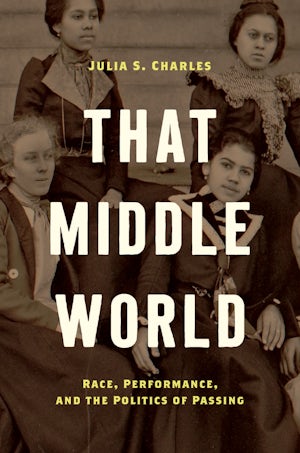Deconstructing Whiteness in “Incognegro”Posted in Articles, Literary/Artistic Criticism, Media Archive, Passing, United States on 2020-12-06 03:11Z by Steven |
Deconstructing Whiteness in “Incognegro”
Interminable Rambling
2020-12-03
Matthew Teutsch, Director of the Lillian E. Smith
Piedmont College, Demorest, Georgia
Every semester, I am amazed at the connective tissue that runs through the texts I place on the syllabus and the themes that arise. No matter the class, I construct my courses around themes, all teachers do. However, when a class ends poignantly on a recurring theme, I find it a really serendipitous occasion. This semester, in my Ethnic American Literature course, we explored the ways that we, as individuals, construct our identities based on ourselves and on the ways that others view us, specifically when they place their preconceived notions upon us. We looked at this from the beginning of the semester through the end. We explored it in the ways that Manar navigates her identity in a new land in Mohja Kahf’s “Manar of Hama” to the ways that Long Vanh navigates his Afro-Asian identity in the face of the community and his own family in Genaro Kỳ Lý Smith’s The Land South of the Clouds.
We concluded the semester with Mat Johnson and Warren Pleece’s Incognegro, a graphic novel that breaks down constructs of race and highlights the ways that society, especially those who want to maintain power, constructs one’s identity. Today, I want to look at a couple of moments from Incognegro and discuss how these moments add to the class’s discussions we have had throughout the course of the semester…
Read the entire article here.




:format(webp)/cdn.vox-cdn.com/uploads/chorus_image/image/67204490/Book_Announcement_Template.0.jpg)


:focal(472x247:473x248)/https://public-media.si-cdn.com/filer/35/25/35254b4c-44e2-4fb1-90b7-05f34da13495/georgetown.png)
